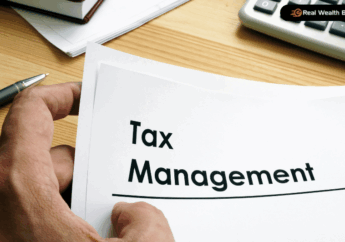Why Businesses and Investors Need Digital Asset Accounting Services!
by Ankita Tripathy Finance Published on: 05 February 2025 Last Updated on: 07 May 2025

With the rise of digital assets such as cryptocurrencies, non-fungible tokens (NFTs), and tokenized investments, the financial landscape for businesses and investors alike has reached a new milestone.
Managing digital assets requires much more than the bookkeeping capabilities that an accounting team may possess. They demand specialized services from a crypto accounting firm with experience in digital asset accounting.
Services like crypto transaction reconciliation and crypto bookkeeping are offered by professional crypto CPAs so that businesses can gain the maximum benefit from investing in these digital assets.
It not only helps you in establishing ownership but also integrate essential digital assets namely documents, cryptocurrencies, manuscripts and data. To understand better, you need to associate it with your distribution chain to watch growth in business.
What is Digital Asset Accounting?

Digital asset accounting is the process of tracking, recording, and managing financial transactions that involve digital assets. Since digital assets are decentralized and blockchain-based, transactions can take place across global markets.
Not only is trading global, there is high volatility when it comes to determining the fair market value of cryptocurrencies such as Bitcoin. This is where services from a crypto bookkeeper should be taken from an experienced Bitcoin CPA to make sure that taxes are calculated in compliance with the latest crypto tax regulations.
Digital asset accounting services offered by cryptocurrency firms ensure that the financial reporting process within your business is accurate in terms of tax filing. In order to do so, crypto accountants record the value of assets at the time of each transaction and reconcile records across wallets and exchanges. All transactions are categorized depending on their taxability.
Types of Digital Assets!
Before you know about digital asset accounting, it is important for you to know the different types of digital assets. Let’s go through the lists of some familiar and unfamiliar ones:
- Documents
- Books
- Photos
- Music
- Videos
- Illustration
- Animations
- Emails and email accounts
- Manuscripts
- Metadata
- Gaming accounts
- Social media accounts
- Logos
- Content
- Cryptocurrency
- Security Tokens
- Non Fungible Tokens
- Tokenized Assets
- Central Bank Digital Currencies
- Crypto Assets
Impact of Digital Assets
Now that we have gone through all the different types of digital assets, we need to learn more about their impact. This will help in understanding the accounting services that we get from digital assets.
With the development of technology around us, we just cannot be free of digital assets. We have come to a habit of using digital assets on a regular basis hence, digital asset accounting and management provides security in business.
Not just that, Digital assets accounting actually helps business owners in securing and accessing data. The data acquired from the digital assets actually helps in understanding a business and how it is a critical decision.
When you use a digital asset in a digital form, you can understand and implement value. It represents the values and their significance in the form of non-fungible tokens, cryptocurrencies and stablecoins.
Is Crypto Transaction Reconciliation Important?
When it comes to digital asset management, transparency of financial records and compliance are essential factors for solidifying a business’s growth. Unless your business makes sure that all digital asset activities are recorded properly, filing taxes will be challenging.
Especially if your internal accounting team has to work on it without the expertise of crypto tax accountants. This applies to digital asset management for individual investors as well. Accurate crypto transaction reconciliation is the binding force that ensures all financial records related to crypto are in reconciliation with internal financial statements.
Crypto transaction reconciliation involves syncing wallet activity, exchange records, and bank statements to ensure that every transaction is accounted for. While one of the main purposes of crypto transaction reconciliation is tax compliance, reconciliation is also necessary to assess how well your business is doing. With well-reconciled records, you can assess profitability and make informed decisions.
A bitcoin cpa can help further by identifying cost-saving opportunities. This is due to the fact that Bitcoin CPAs stay updated on evolving crypto regulations and are experts in using tax-saving strategies to minimize liabilities.
Some of the tax saving practices that a Bitcoin CPA may recommend after crypto transaction reconciliation include tax-loss harvesting and the strategic use of accounting methods. The main accounting methods applied in digital asset accounting are FIFO, LIFO, and HIFO.
Benefits of Digital Assets Accounting
If you are wondering about the significance of digital asset adoption and how they integrate the significance into business, let me share some benefits. These reasons will help you scale the challenges arising from digital asset adoption and accounting.
There are several millions of transactions everyday in a business and this is where digital assets accounting actually helped.
Furthermore, the digital assets accounting services help in creating a controlled environment along with creating a robust network and framework of documentation and processing!
The accounting of digital assets also helps in tracking the development along with ownership. There are several types of opportunities that come with digital asset accounting. It tries to integrate information of clients along with keeping a tab on new investors.
Overall, there is a higher potential of a business functioning more effectively and smoothly with digital asset accounting. It is also a type of a collaborative experience along with community building across all stakeholders.
Challenges from Digital Asset Accounting
When you try to integrate digital asset accounting, you wonder about the overall integration of businesses along with following the regulatory framework and tax perspective. These aspects are constantly evolving and yet there are challenges like centralized exchanges.
Another challenge is the way data can be easily available across a section of people in the business. This might put the accounting services at risk. You must consider these issues!
Conclusion
With more and more businesses integrating digital assets in their financial processes, the importance of specialized accounting services for digital assets has risen. Digital asset accounting services enable businesses and investors to work with cryptocurrencies confidently.
They act as support is provided not only to maintain tax compliance and accurate financial records but also to mitigate risks and discover the best strategy for business growth with the integration of digital assets.



































































































